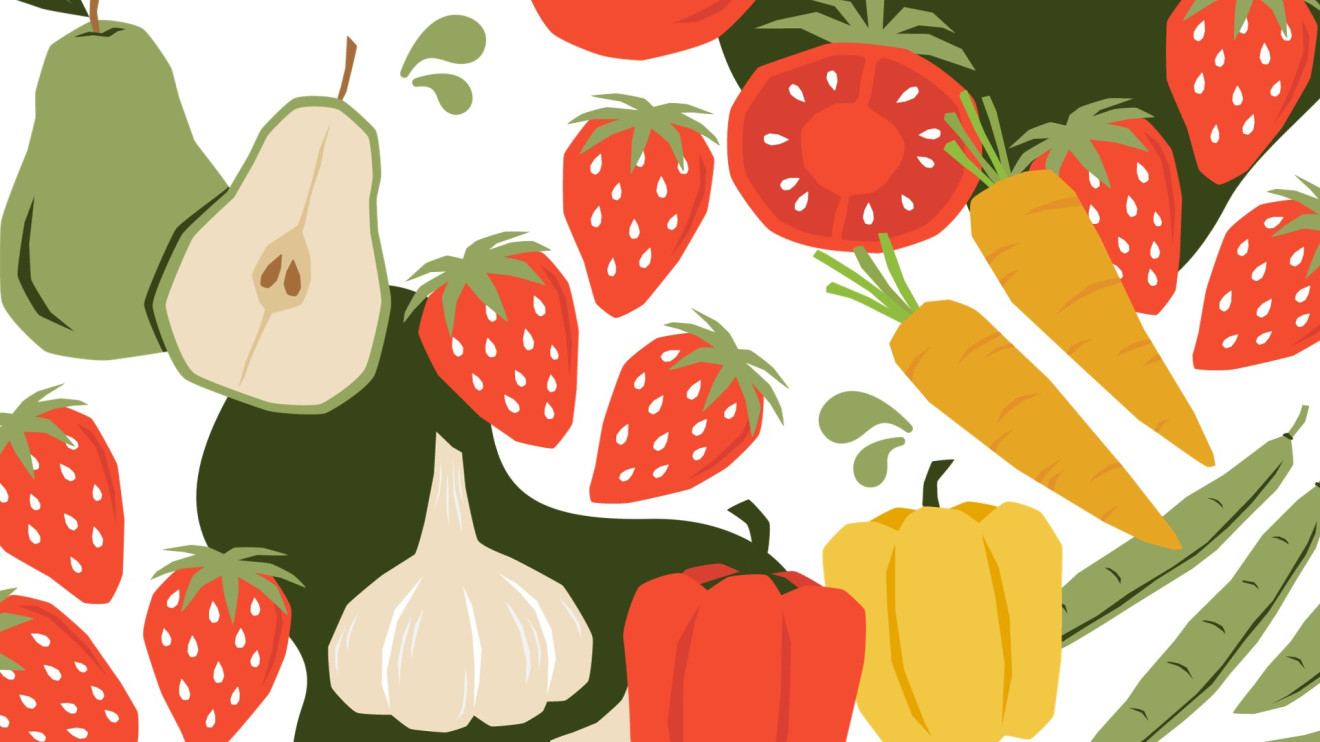
Presented in collaboration with The School of the Environment ENV1063 graduate course, The School of Cities, and UTERN.
Join Us on December 1 & 2
The Tri-Campus Food Symposium is a two-day, free-of-charge event that brings together scholars, educators, activists, students, and community members across all three University Toronto campuses who are interested in and/or contribute to the development of equitable and sustainable food systems both within and beyond the boundaries of the University campus.
Emerging from the joint participation of interdisciplinary graduate students and the Hart House Student Farm Committee, this year’s Tri-Campus Food Symposium centers on themes of
- food justice & the campus,
- communities of care and networks of solidarity, and
- storying the edible campus
Throughout the two days, you will experience speaker panels, workshops, and presentations from professors, community organizations, and student groups.
In celebration of its inaugural year, and in the spirit of building communities of care and networks of solidarity, we are extending our invitation to all interested students, staff, and faculty from all three campuses to attend the symposium for free. You are welcome to attend as many sessions as you would like - from a single session to both full days of the event.
Please review the detailed event agenda here.
Food Symposium Agenda
Registration
Ongoing throughout the day
Second floor of Hart House
Opening Remarks
Music Room
ENV1063 Graduate Students & Hart House Student Farm Committee
Break
Keynote
Music Room
The Hidden Curriculum and Critical Food Pedagogy
Jennifer Sumner
Lunch
Burwash Room & Music Room
Panel
Music Room
Growing on Campus
Eva Lynne, Beatrice Lego, Melanie Jefferey, Lorien Simoes de Paiva, Lea Jiang (Dig In!), Alison
Break
Music Room
Concurrent Session 1
Music Room
Student Food on Campus
Mike Lawler
Concurrent Session 2
Burwash Room
Black Food Sovereignties and the Edible Campus
Nicole Austin, Lizramona Mwakitwange
Speakers
-

Alison Morley
Urban Agricultural Manager, Sky Garden
Alison Morley is a staff member of the UofT Civil and Mineral Engineering department, and has been a volunteer with the Skygarden project for over a decade. This past season she managed the garden from planting through harvest, with the support of many long term volunteers who have much more gardening knowledge than she does! Alison is an alum of the MA program in International Development here at UofT, and has enjoyed gaining hands-on experience with urban agriculture.
-
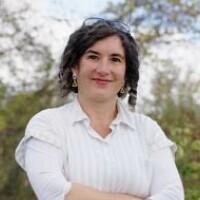
Béatrice Lego
Campus Farm Coordinator, UTSC Farm
Béatrice Lego serves as the Campus Farm Coordinator, responsible for providing administrative support to manage the teaching and pedagogical farm projects. In this capacity, she assists with site visits, experiential learning content production, and the farm's overall operation. A stalwart for the initiative, Béatrice engages with farm users, including administrators, faculty, staff, and students, with contagious passion. Her creativity shines when curating engaging experiential learning opportunities for the University community. With a PhD in Polymer and Surface Chemistry from the Université de Montréal, and certifications in permaculture design and advanced social systems design from the Permaculture Women’s Guild, Béatrice's academic background informs her innovative approach to the Campus Farm initiative, which she has been involved with since its inception in 2018.
-
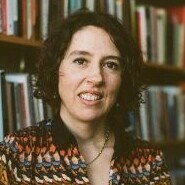
Eva-Lynn Jagoe
Professor of Comparative Literature, Spanish, and Portuguese; Head of Innis Garden
Eva-Lynn Jagoe is the Vice Principal of Innis College and a Professor in Comparative Literature and Spanish, where she teaches courses in environmental humanities. She is an organizing member of the U of T Food Coalition, which works to address food insecurity through anti-capitalist mutual aid. Eva-Lynn is writing a novel set in Catalonia, and writes both academic and non-academic essays about family, farming, and place. Her family stewards Solarity Acres, a permaculture food forest in the Kootenay Mountains of British Columbia.
-
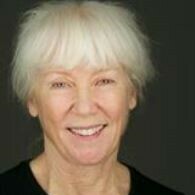
Jennifer Sumner
Associate Professor, Department of Leadership, Higher and Adult Education, OISE
Jennifer Sumner teaches in the Adult Education and Community Development Program of the Ontario Institute for Studies in Education at the University of Toronto. Her main research interests focus on food, sustainable food systems, critical pedagogy and the social economy. She is co-editor of Critical Perspectives in Food Studies (3rd edition 2022, University of Toronto Press) and editor of Learning, Food and Sustainability: Sites for Resistance and Change (2016, Palgrave Macmillan).
-

Lea Jiang
Farmer’s Stand Coordinator, Dig In! Campus Agriculture Club
Hi friends! My name is Lea and I’m Farm Stand Coordinator at DigIn! I first got involved with DigIn at a seeding event in the spring, and it snowballed into helping run the Farmers Stand in the summer and fall (I fell in love with it, hence my position!). I’m doing a double major in Ethics, Society, and Law and Women and Gender Studies and a minor in Political Science. I like to think that this is proof that DigIn does not rely on gardening/life science experience, and really welcomes and values different academic backgrounds. I like to crochet, make jams, and noodle on guitar when I have the time 😊.
-

Lizramona Mwakitwange
Hello, I'm Lizramona, a second-year undergrad double majoring in Health & Disease and Environment & Health. Currently, I serve as a Research Assistant at the Trinity College Food Systems Lab and EcoSpark, where I work to develop strategies and initiatives that improve black student engagement with environmental justice. I'm excited to lead discussions at this year’s Campus Food Symposium, empowering participants to explore the crucial intersection of health, culture, and equitable access to food.
-
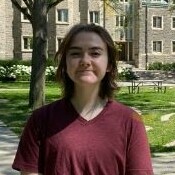
Lorien Simoes de Paiva
Research Lead, Trinity Food Systems Lab
Lorien is a second-year undergraduate student pursuing a joint degree in Cell & Molecular Biology, Ecology & Evolutionary Biology, and Sustainability. He is a current lead for the Trinity College Food Systems Lab working with a multidisciplinary group of students, staff, and faculty to research and cultivate sustainable food systems on campus. His research interests lie at the intersection of agroecology and cellular processes, with a passion for socially-just and ecologically-founded agriculture. In his free time, he can be found feeding worms or gardening!
-

Melanie Jeffrey
Assistant Professor, UofT Department of Medicine; Centre of Indigenous Studies
Miigwams ni-dish-ni-kaz, Parry Sound ni-doon-ji-bah. My English name is Melanie Jeffrey, and I am a settler of English, Irish and Scottish descent from Parry Sound, on the traditional territory of the Anishinaabeg in the Williams Treaties area. My current position is a Contractually Limited Term Appointment, Assistant professor, Human Biology & Indigenous Studies, University of Toronto. I have been working with Indigenous Studies since 2008, when I began to collaboratively develop a first science breadth requirement with staff, students, faculty and community members.
My graduate work and postgraduate work focused on neuroscience, pharmacology, and epilepsy (PhD Pharmacology, U of T, 2014). I also studied health, ecological and social sciences and Indigenous studies (BA Health Studies, U of T, 2008) and Fine Arts (BFA Film Production, York U, 1999). I was in two diverse postdoctoral fellowships, first in fundamental neurobiology and models of stroke, seizures, and FASD, followed by public health and Indigenous traumatic spinal cord injuries.
My research and teaching interests include Indigenous environmental justice, the health of peoples and lands, and the nexus between Indigenous Knowledge Systems and STEM, including health, ecology, and engineering approaches to address community-directed research agendas. In teaching and research my role is to listen, connect people, and bridge ways of knowing to inform social justice and equity in health and environmental problem solving.
-

Mike Lawler
Ph.D Candidate, Geography, Collaborative Specialization in Food Studies
Mike Lawler is a settler residing on Treaty 13 territory. He has managed multiple farmers’ markets throughout Toronto, led international experiential education programs, cooked professionally, led historical food tours, and been involved with a range of NGOs and community organizations. He is currently completing a PhD in Geography at the University of Toronto, with a focus on diaspora foodways and institutional food provisioning.
-
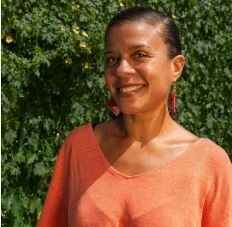
Nicole Austin
Black Food Sovereignty Engagement Coordinator, Urban Farm at TMU
Presenting: Black Food Sovereignties and the Edible Campus
Registration
Ongoing throughout the day
Second floor of Hart House
Concurrent Session 1
Burwash Room
Native Plant Tea-Making Session
Isaac Crosby, Danielle Kwan-Lafond
Concurrent Session 2
Music Room
Seed Saving
UTSC Farm and Hart House Student Farm Committee
Break
Presentation
Music Room
Campus Labour and Food Justice: CUPE 3261
Luke Daccord, CUPE 3261 Members
Lunch
Burwash Room & Music Room
Concurrent Session
South Sitting Room
Students Cooking Within Limitations
Stephanie Chartrand
Panel
Music Room
Defining the Edible Campus - An Interdisciplinary Discussion on Research, Pedagogy & Collaboration
Miriam Streiman, Michael Classens, Chris Ramsaroop, Jaclyn Rohel
Break
Music Room
Keynote Panel
Music Room
Decolonizing Food Studies
Kaitlin Rizarri, Stephanie Chartrand, Danielle Kwan-Lafond, Samuel Wong
Speakers
-

Chris Ramsaroop
Assistant Professor, UofT New College
Chris Ramsaroop is an organizer with Justicia for Migrant Workers. He is also an instructor in the Caribbean Studies Program at the University of Toronto and a clinic instructor at the University of Windsor, Faculty of Law.
Ramsaroop is working to complete his PhD at OISE/University of Toronto and is also the Coordinator for Community- Engaged Learning at New College, University of Toronto. -
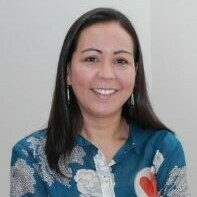
Danielle Kwan-Lafond
Assistant Professor, UTSC Sociology; Indigenous Garden Manager, UTSC Farm
Professor Dani Kwan-Lafond is a mixed-race woman born in Treaty 4 territory (Saskatchewan) who has lived in Tkaronto (Toronto) for many years. She is a former social worker, a former high-school leaver, and someone with lived experience as a social service client; these experiences continue to inform her teaching practice and commitment to non-traditional, decolonized and anti-racist approaches to teaching and learning. Professor Kwan-Lafond’s teaching and research interests include social inequality, Indigenous studies, race/racism, youth studies, and the sociology of education. Her approach to teaching and learning is informed by UDL (universal design in learning), trauma-informed approaches to teaching Indigenous content, and a focus on reflexivity and self-reflection for students. She is committed to the meaningful inclusion of communities in the classroom (‘nothing about us without us’), and her courses often involve guests, collaborators and/or hands-on activities that enhance students’ understandings of difficult material. Professor Kwan-Lafond also works with Indigenous students and teachers at TEC University in Costa Rica, where she has traveled with students from Canada to do land-based learning with Indigenous communities. She was formerly the Coordinator of the Indigenous Studies certificate program at Centennial College, where she helped create a free online eTextbook available to all learners in Canada. Her PhD dissertation involves participatory research with first-generation Canadian youth in a large suburban high school, and is focused on parental involvement, post-secondary pathways, and notions of success for first-generation youth. Her PhD work was supported by the Vanier Canada Graduate Scholarship.
-
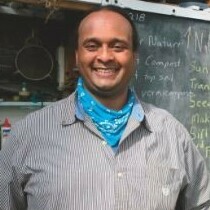
Isaac Crosby
Indigenous Agriculturalist & Knowledge Keeper, UTSC Campus Farm; Trinity Food Systems Lab; Crosby Gitigaan
Isaac Crosby also known as Brother Nature is a Black/Ojibwa agricultural expert with a passion for teaching and sharing his knowledge of Indigenous food systems. Isaac is part of a large family from the Ojibwas of Anderdon, a pre-confederation band of mixed Black/Indigenous people living near Windsor, ON. Isaac learned to farm and grow food with his grandparents and community, and has also formally trained in landscape agriculture. Isaac's work can be found across the city, where he has planted many Indigenous gardens with schools and community groups. He has also been the garden expert on CBC Fresh Air. He was the lead indigenous gardener and programer at Evergreen Brick Works for several years, and Since 2020, he has been the community partner for the Campus Farm at UTSC where he mentors students and Indigenous youth, designs and maintains Indigenous food and medicine gardens, and teaches workshops. He looks forward to sharing his knowledge with the Food Systems Lab Team and students.
-

Jaclyn Rohel
Post Doctoral Fellow, UTSC
Jaclyn Rohel is a postdoctoral fellow at the University of Toronto Scarborough, where she works with the Sustainable Food and Farming Futures Research Cluster and the Feeding City Lab. Jaclyn brings an applied interdisciplinary approach to her work on urban food provisioning. She has contributed to Feeding City since 2020, jointly leading research, knowledge mobilization, and pedagogical activities in areas such as food access and community supports, markets, and public food culture. She is also a member of Gastronomica’s Editorial Collective and produces and co-hosts the Gastronomica podcast series on the Heritage Radio Network. Jackie has a PhD in Food Studies from New York University and has held fellowships in community-engaged research and new media at the Jackman Humanities Institute at the University of Toronto.
-
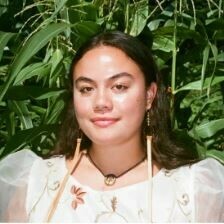
Kaitlin Rizarri
Doctoral Student, OISE, Social Justice Education
Kaitlin Rizarri is a Visayan Filipina and Ktaqmkukeweq Mi'kmaw community farmer based in Tkaronto. She farms with Tkaronto Plant Life, an Indigenous youth-led small-scale farm, where she grows food and medicines for community. She is also a doctoral student at the University of Toronto in Social Justice Education, where her research is within food sovereignty in Tkaronto and cities.
-

Luke Daccord
President of CUPE 3261, Union for University of Toronto Workers
Luke Daccord is the President of the union CUPE 3261 which represents services workers all over the University of Toronto in more than 100 buildings. This includes some of the University’s chefs, sous chefs, cooks, servers, and cafeteria workers, among others. As we all know, campus foodservice workers are an essential part of our university community and CUPE works to stand up on behalf of good, stable jobs. The bargaining units (full-time part-time, casual, and 89 Chestnut) requested from the University of Toronto Director of Labour relations that all three units negotiate together at the same table. This request was refused by the director, but this process of pursuing unified bargaining is still ongoing and still a priority for the union.
-

Miriam Streiman
Chef & Educator; MEd Student, Community Development and Leadership, OISE
-

Michael Classens
Assistant Professor, School of the Environment, UofT
Michael Classens is an Assistant Professor at the School of the Environment at the University of Toronto. His research predominantly focuses on food systems within the context of social and environmental justice. Michael is also the Professor for the new undergraduate/graduate course ‘The Edible Campus’ which the Tri-Campus Food Symposium was created through. Additionally, he is currently co-leading the food system research stream of the Youth Climate Action in Toronto project in partnership with the City of Toronto government.
-
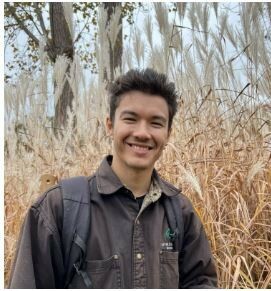
Samuel Wong
Indigenous Harvest Worker, The Stop
Sam Wong (he/they) is a Métis (family roots in Calahoo AB) -Chinese-Acadian young person from Ottawa who is passionate about transforming the current food system. He currently lives and works in Toronto at The Stop community food centre as an Indigenous Harvest Worker. Sam has also helped support the Humber River lodge, specifically with the restoration of native species of plants in the river valley. This past year Sam also served as a youth representative on Toronto’s Indigenous Climate Action Grant. Sam’s thinking and work revolves around the localization of the economy through education and community involvement.
Presenting: Decolonizing Food Studies
-

Stephanie Chartrand
MA Student, Leadership, Higher, and Adult Education, OISE
Stephanie is an MA student in the Department of Leadership, Higher & Adult Education studying Adult Education and Community Development. She holds a BA in Political Science from Lakehead University and an Honours Bachelor of Community Development from Humber College. She is currently the Vice President Internal for the LHAE Departmental Student Association. She is also an Infinite Reach Facilitator which is a program that supports Métis students within post-secondary while also hosting cultural workshops for the broader university community. Her research interests include understanding the social economy, pedagogy of food, and Indigenous community organizing; in particular around food initiatives.


